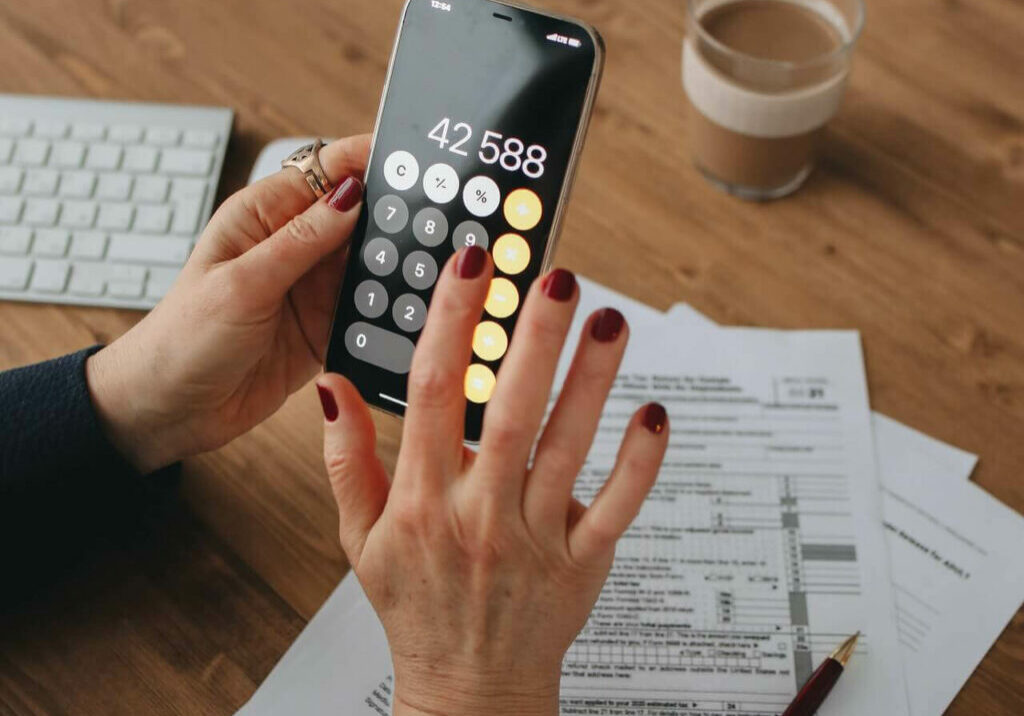Interior Design Bookkeeping: Tax Tips Every Interior Designer Should Know
As an interior designer, your passion is designing and optimizing spaces that are both functional and turn your creative visions into a reality. Yet, amidst the patterns, colors, arrangements, and textures, it’s easy to overlook a less glamorous but equally vital aspect of your business: taxes. If you’re looking to expand your business, having help in managing your taxes can be both a stress reliever and putting the best foot forward to take control of your business. Don’t let the complexities of tax season dim your designer’s spirit! In this blog, we’ve curated essential tax tips tailored specifically for interior design bookkeeping, ensuring you can confidently navigate the financial landscape and focus on what you do best.
Deductible Business Expenses
While taxes are often overwhelming, there are benefits to know how to manage them as they often include deductions. Interior designers can deduct a selection of expenses, including professional fees, continuing education costs, and the cost of samples and materials. For example, if you run your business out of your home, you may be able to deduct a portion of your rent, utilities, and other expenses. To qualify, your home office must be used exclusively and regularly for your business. You can also track your mileage. If you use your car for business purposes, you can deduct the cost of your mileage. Be sure to keep a log of your business-related driving. Consulting with your accountant to see what deductions you qualify for before claiming certain deductions is the best way to make sure you’re claiming only what you are owed.
Understanding the Different Types of Taxes
Being self-employed means you are responsible for paying self-employment taxes, which include both the employer and employee portions of Social Security and Medicare taxes. Best tax practices encourage setting aside money for these taxes throughout the year. It’s important to know that self-employed individuals must pay estimated quarterly taxes to avoid penalties for underpayment. Accountants can help you calculate your expected tax liability and make quarterly payments to the IRS. You can also take advantage of retirement savings plans. Designers can contribute to retirement savings plans such as a 401(k) or an IRA. These plans can help you save for your future and reduce your tax liability. This is a lot to keep track so hiring specialized accountants can be a saving grace in assisting you in managing your tax filings.
Maintaining Tax Records
Maintaining organized and accurate records of all your business-related expenses, income, receipts, and invoices is another great tip for preparing for a smooth tax season. Accountants advise documenting all of your expenses, this includes things like travel, supplies, and marketing costs. Utilizing financial software such as Quickbooks Online is a seamless and efficient way to keep current and accurate financial records. To make the process even easier, you can also integrate quickbooks with a project management software of your choice, we recommend Houzz Pro or Ivy by Houzz. The more detailed your records are, the easier it will be to file your taxes and claim the deductions you’re entitled to. Proper documentation will ensure that you claim proper deductions and credits this will also streamline tax filing and help your interior design bookkeeping needs.
Organize your Expenses
Part of interior design bookkeeping, is making sure that expenses are organized and separated, for example, distinguishing between business and personal expenses. This allows you to have eyes on expenses that are owed to you in the business, for example, if your clients reimburse you for expenses, be sure to keep track of these expenses so that you can report them on your taxes. You want to ensure that you are clear to pass audits. Use separate bank accounts and credit cards for your business transactions to avoid confusion and potential audit triggers.
Pay your Taxes on Time
Another helpful tip is making sure you are up to date on your tax payments and filings. The deadline for filing your taxes is April 15th each year but you can typically pay them beginning in late January. It’s important to know, there may be penalties and interest if they are filed late. Hiring an accountant can make paying and filing your taxes much easier as they are experts on deadlines, deductions, and can help you avoid a big tax bill at the end of the year.
Hiring Contractors
Having contractors can be a crucial part to your interior design company but they must be classified differently than employees. Contractors are classified as independent contractors which means they are self-employed individuals who provide services to help your interior design bookkeeping needs, but work independently. They are responsible for their own taxes, insurance, and business expenses but as the designer hiring them you are not required to withhold income taxes or provide benefits like health insurance or retirement plans. You pay them a set fee or on a project basis. When working with independent contractors, make sure to have a written contract outlining the scope of work, payment terms, and other relevant details. Misclassifying workers can lead to tax issues, so make sure you comply with the proper tax reporting requirements.
Seller’s Permits
One last tax tip that is crucial for making a profit as an interior designer, is selling merchandise to your clients. In most cases, you may need to get a seller’s permit from your state. Obtaining a seller’s permit and selling merchandise like furniture, decorations, rugs, can be a lucrative opportunity for interior designers to diversify their revenue streams to increase their profits. This is a helpful tool because it will allow you to collect sales tax on your sales. Logistis for Designers has lots of experience in assisting clients in getting their state seller’s permit.



